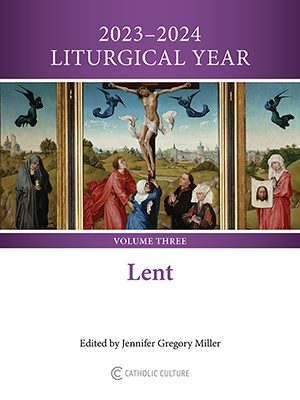Financiers can't exploit the Vatican anymore. But politicians can.
By Phil Lawler ( bio - articles - email ) | Dec 12, 2014
“The days of ripping off the Vatican are over,” Cardinal George Pell has announced. The Australian cardinal, who is now the no-nonsense prefect of the Secretariat for the Economy, explained that for generations, Vatican officials made their own decisions about money matters, without expert advice or oversight. Shrewd financial operatives, fully aware of the situation, were often able to talk naïve clerics into foolish deals.
There’s no telling how much money the sharp operators have taken from the Church over the years, because up until this year, in many cases, innocent Vatican officials probably didn’t even know that they were being fleeced. In any case, up until this year, nobody has been keeping careful records.
The reforms now underway in Rome are long, long overdue. But financial affairs are not the only matters in which clever, worldly men have been able to take advantage of naïve prelates. The same sort of thing happens routinely in the political world. Smooth-talking activists regularly enlist clerics for their causes, using the sorts of arguments that they know will appeal to men of the cloth, recognizing that most priests do not have the political savvy necessary to see the details, the complications, the unintended consequences.
Thus, for instance, bishops are easily persuaded to support government welfare programs, despite the mounting evidence that these programs don’t work, and despite the risk that uncontrolled deficit spending will eventually corrupt the currency, with devastating results for those who are economically vulnerable. Fast-talking financiers have made some prelates forget the adage that if a deal seems too good to be true, it probably is. Zealous ideologues have made other clerics overlook the immutable economic rule that “there’s no such thing as a free lunch.”
This week a group of Catholic bishops lent their voices to the call for an end to fossil-fuel use, persuaded that the danger of climate change calls for that drastic step. Pope Francis, too, proclaimed: “The time to find global solutions is running out.” Neither the bishops meeting in Peru nor the Pope spoke as scientists or policy experts; they are not qualified to do so. But they were convinced to join in a cause—just as, in the past, many Vatican officials have been convinced to join in questionable financial schemes.
This is not an argument about climate change. It is an argument about expertise: an expertise that bishops do not have.
Cardinal Pell shows good common sense when he says that Vatican officials—and by extension all bishops and pastors—should be guided in their financial decisions by competent lay managers, and subject to audits by careful lay accountants. The same sound logic should be applied to bishops’ forays into the world of public policy.
All comments are moderated. To lighten our editing burden, only current donors are allowed to Sound Off. If you are a current donor, log in to see the comment form; otherwise please support our work, and Sound Off!









